Island Lake search and rescue team dives deep to bring closure to families after drownings
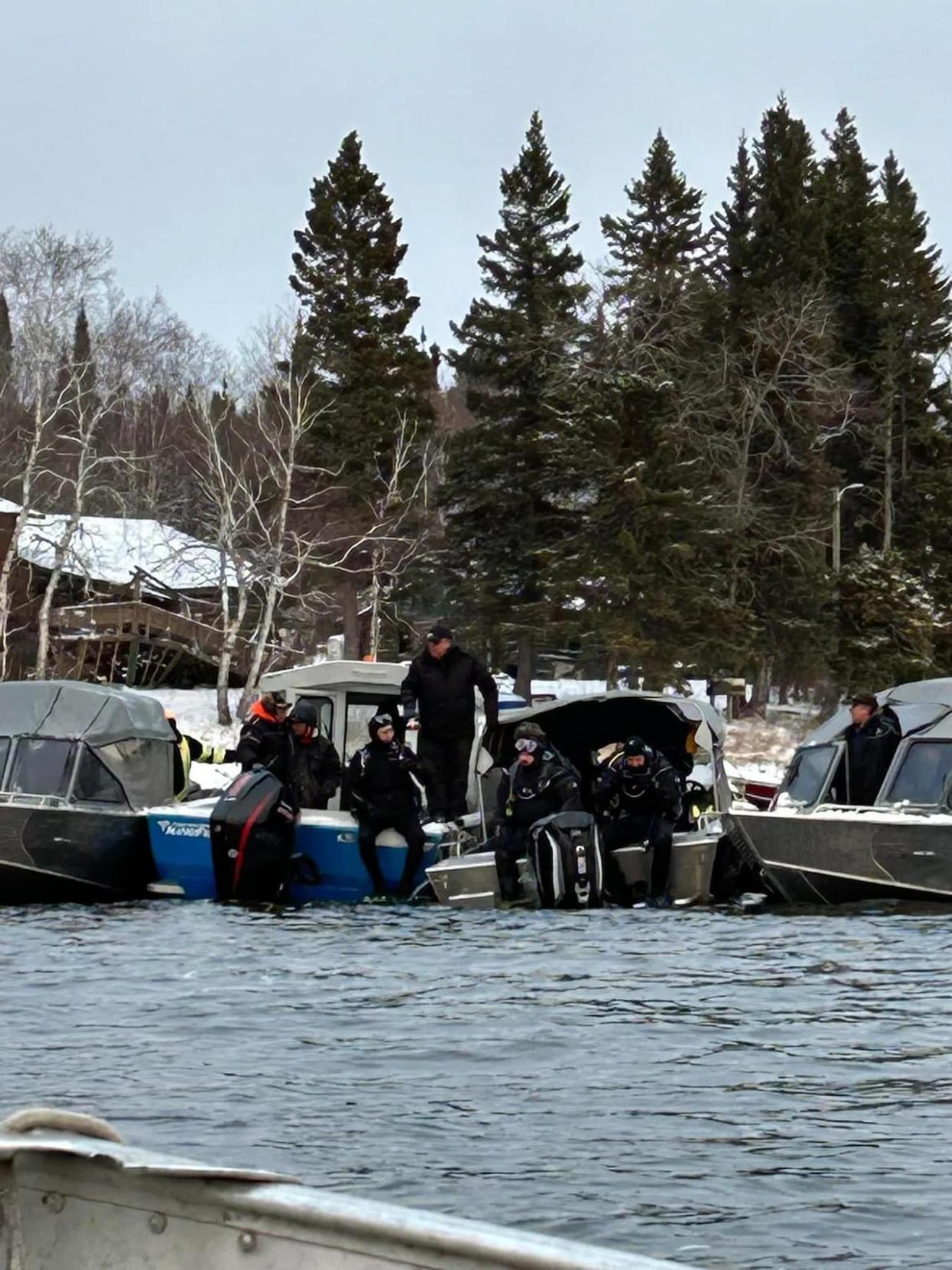
Kurt Mason was in a boat using sonar equipment to search Island Lake for a lost community member when a loud voice came blaring over his two-way radio.
"My radio was just going crazy … saying, 'Bring your equipment, bring your diving equipment right away — we want you here,'" he said.
Officially, Mason is the education director for Garden Hill First Nation, in northeastern Manitoba. But much of his time is spent volunteering with the Island Lake search and recovery team, which includes the Oogoogeek dive team.
Oogoogeek — Anisininew for "people who go under water" — carries out underwater recovery after drownings to help bring closure to families and their communities.
Its members come from three Island Lake First Nations — Wasagamack, Garden Hill and St. Theresa Point.
Island Lake itself is the sixth-largest lake in the province, spanning more than 1,200 square kilometres. In warmer months, people boat across it from island to island. In winter, an ice road across the lake connects the communities.
Mason was on the lake on a Friday afternoon when the call came in to come with his diving equipment, after a week-long search for Harold Taylor, a 42-year-old Garden Hill First Nation man who had gone out in his boat to get firewood Nov. 1.
His disappearance prompted an extensive land, water and air search by teams from all four Island Lake communities (Red Sucker Lake First Nation is also part of the group), along with local police, RCMP and members of Taylor's family.
His chainsaw was found stuck in a piece of wood on Wass Island, near Garden Hill. His abandoned boat was later found floating across the lake near another island.
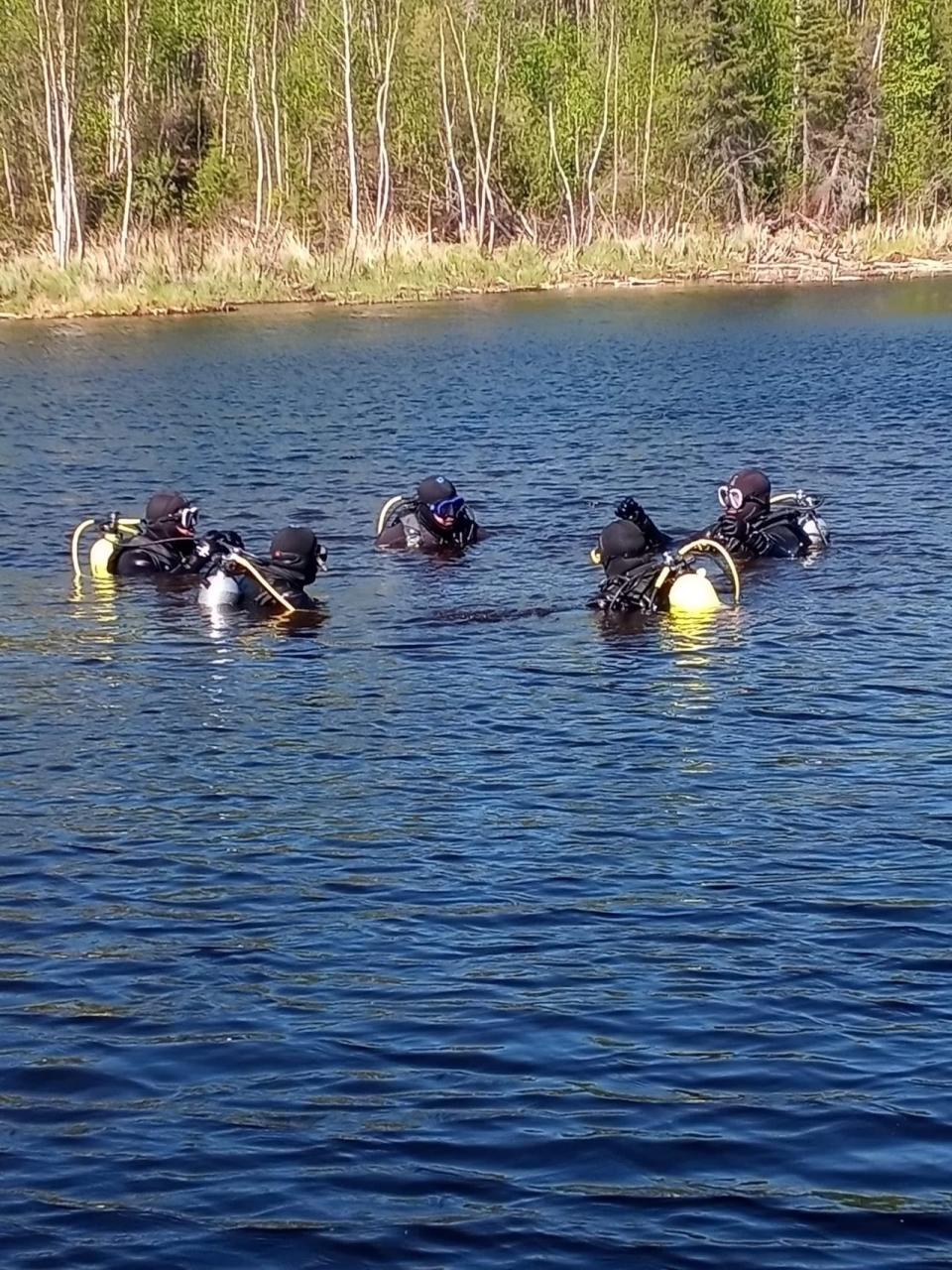
The Island Lake dive team was initially formed in the early 2000s by St. Theresa Point's Ivan Mason. (Submitted by Kurt Mason)
Garden Hill's chief, who had been out searching by boat for days and dragging an underwater camera on the bottom of the lake, was the one who spotted Taylor's body near Wass Island.
"Maybe about 50 feet to 100 feet away to where his chainsaw was, that was where we located the body," said Chief Charles Knott.
Mason sped to the location, zipped into his wetsuit and waited for two other dive team members — George Harper and Roland McDougall — to arrive from Wasagamack.
Once all three were geared up, Mason asked for a prayer from one of the people who had gathered on boats and on shore to support them — a ritual before every dive.
Then they dove into the lake — which already had ice in spots. A layer of snow covered the boats.
"It was so cold," Mason said. "So cold."
They were underwater for a total of about 10 minutes, coming up periodically — "just to look around where we were, because usually you get lost right away when you're underwater," said Mason.
But "you can see everything under there," he said. "The water is so clear. You can see the rocks, you can see the debris."
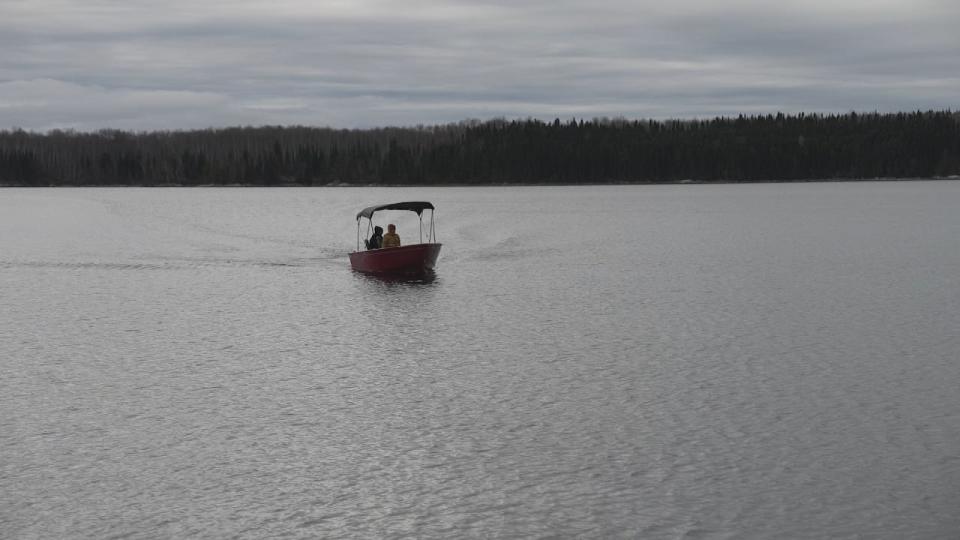
The Island Lake Search and Rescue Dive team searches for people who go missing in the waters surrounding the Island Lake communities. (Tyson Koschik/CBC)
Once they located Taylor, they brought him to the surface of the water and fastened his body to the boat.
Mason could hear crying and "chaos" as Taylor's body was brought to shore of Garden Hill.
Exhausted, he and the other divers laid back and floated on the surface of the water.
Mason said many believe Taylor went in the water after his boat after it floated away.
"I didn't know him as friends friends, but I knew him," said Mason.
"Not a sight that anybody would want to see, but that's something that we have to do as a diving team. Recover and give closure to the family and the community. Everybody worked hard. A lot of people worked hard."
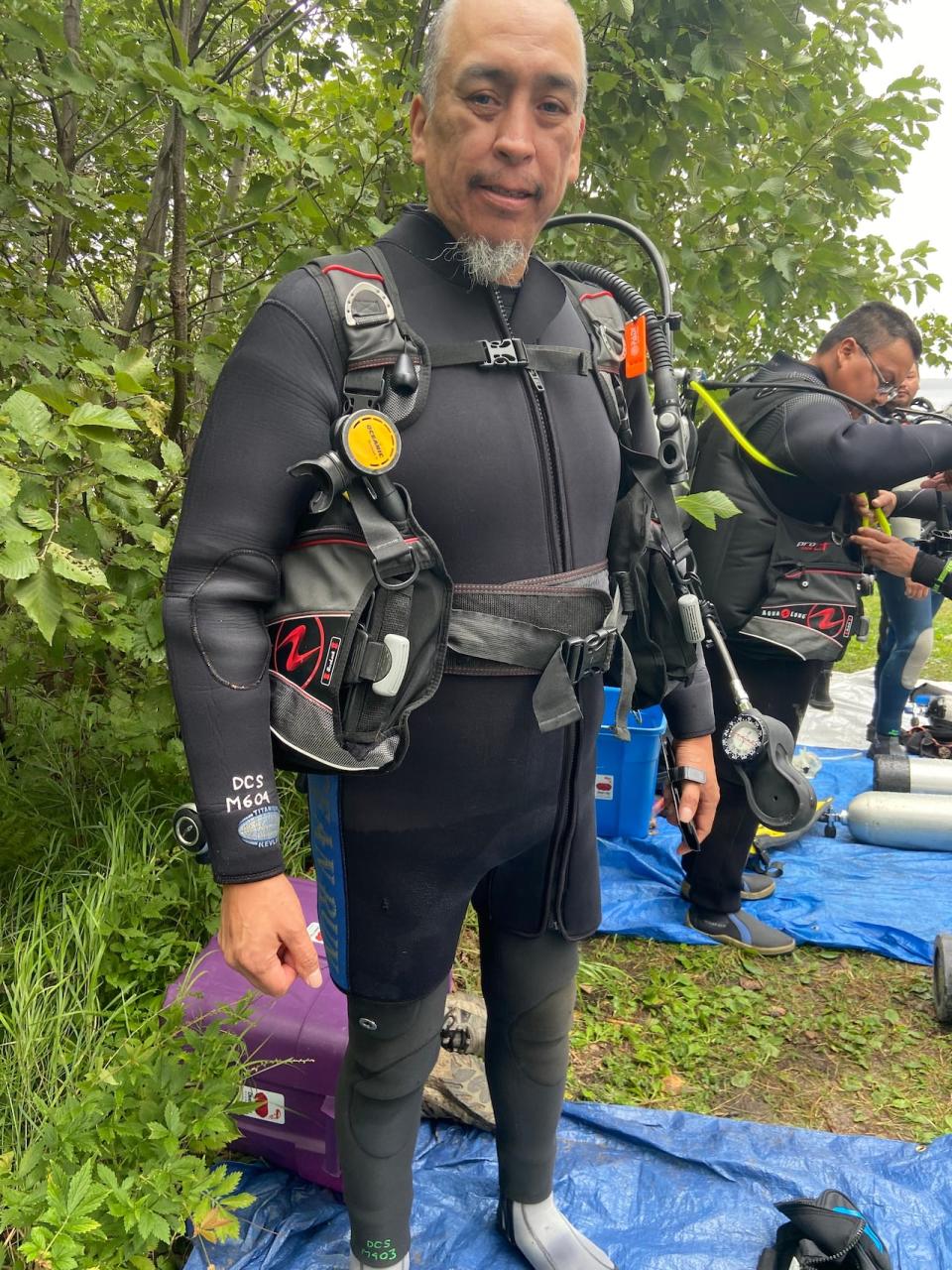
Mason says it's important for the team to help when a community member goes missing in Island Lake. 'We just want to bring closure to the family,' he says. (Submitted by Kurt Mason)
'It comes from our hearts'
The Island Lake dive team was initially formed in the early 2000s by St. Theresa Point's Ivan Mason.
That's when his brother-in-law went missing after heading out on snowmobile at a point in the year when there were still areas of open water on Island Lake.
Many in the community suspected he'd gone through the ice in a particular area and relayed that information to RCMP. But given the vastness of the area, police would generally only investigate if there was a certainty a body would be found, said Edward Flett, a longtime member of the dive team.
The community felt the RCMP wasn't doing enough, Flett said.
He said Ivan Mason wasn't satisfied, so he started the community's own underwater recovery team, including arranging to get scuba certification training for members.
They didn't just search around the Island Lake communities — the four original team members went to other northern First Nations, including Tadoule Lake, Shamattawa, Nelson House and Split Lake, to help underwater recovery efforts.
The team has now grown to include 15 certified scuba divers — 13 men and two women — from the Island Lake region.
Victor Little, one of the team members, notes they all volunteer their time.
"What we do … it comes from our hearts," he said.
"It's for the people that we're doing this for. We don't ask for anything. But we feel better after that — we accomplished what we started," he said.
Emotional toll in searches
Another member, St. Theresa Point's Tanya McDougall, knew when she saw divers entering the water to search for a missing teen three years ago that she had to be part of it.
As divers entered the water to search for Tammy Nattaway, 16, McDougall waded out to support them, including singing a water song while they dove near Garden Hill.
"I was thinking as women, as First Nations women, we carry the water teachings," she said.
"That's when I was thinking … 'I need to join the dive team' — if not to actually dive, at least to be a part of the team, so that they have a woman on that team."
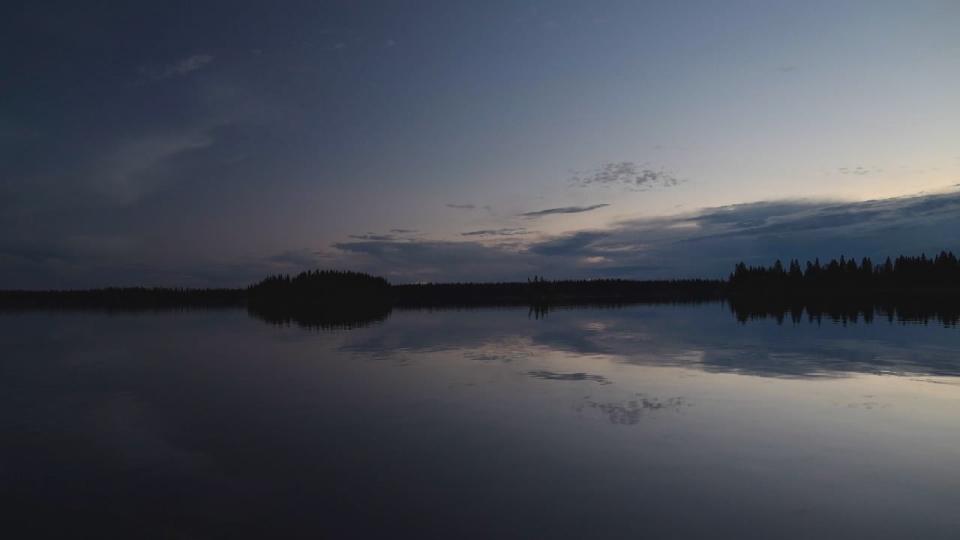
When a community member from Red Sucker Lake, Garden Hill, Wasagamack or St. Theresa Point First Nation goes missing, the Island Lake search team responds. (Tyson Koschik/CBC)
The physical aspects of diving and getting her certification, which involved completing an open-water dive to nearly 20 metres (60 feet), were hard enough.
But she also had to face the reality that the people she would be searching for would often be people she knows.
"I had to have a very deep talk with myself. Mentally, emotionally, would I be ready should I come face to face with that situation? I wouldn't have pursued it if the answer wasn't yes," she said.
"I felt more strongly … [about] helping the affected families and communities than I had any fear."
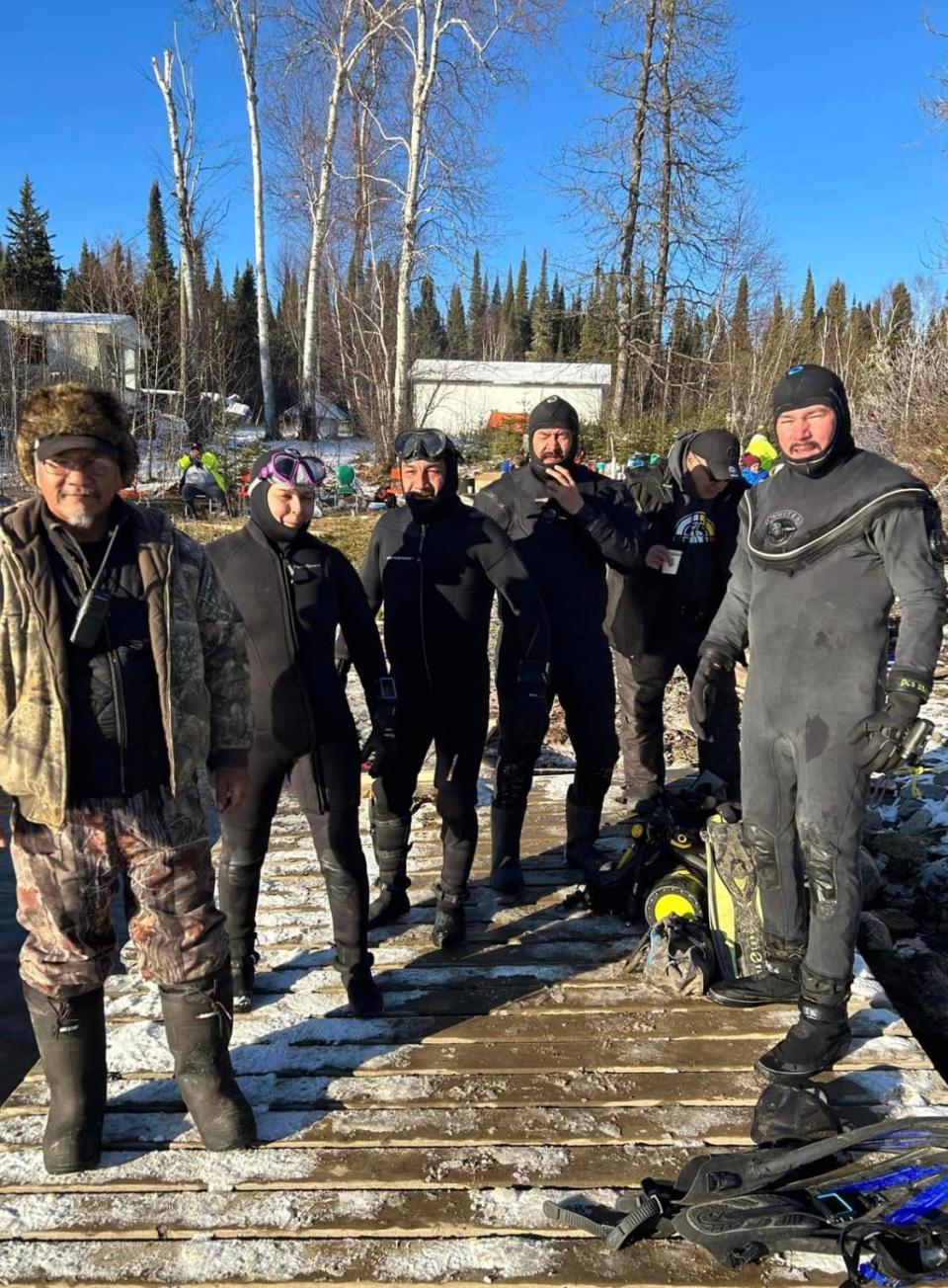
St. Theresa Point's Tanya McDougall (second from left) knew when she saw divers entering the water to search for a missing teen three years ago that she had to be part of it. (Submitted by Tanya McDougall)
But their searches sometimes face challenges that are beyond the team's control.
In late October, two boats collided near Garden Hill. One of the drivers swam ashore, but the other man never made it.
Searchers from all four communities in the Island Lake region went out that night to look for him, and hours later, Mason and members of the dive team found his body near Wass Island.
But by that time, the RCMP search boat had finished for the night. The searchers lost track of the body.
"We shouldn't have to go through that, lose the body, because we all had to wait for RCMP," said Mason.
Cpl. Ryan Harnum of the RCMP said when the ice road is open between the Island Lake communities, they can respond to situations by vehicle at night. But during the warmer months, when islands are accessible only by boat, it's too dangerous.
"We don't have the luxury of saying, 'Hey, can somebody jump in a truck and come help us?'" said Harnum.
"It's a tough pill to swallow — it's hard to even get your mind around that there's an ongoing situation and you can't get there."
But he says RCMP members try their best to maintain good relations with the community, including band constables and First Nations safety officers.
"We rely on them. Our relationship is really good, and it has to be," he said.
The Oogoogeek dive team doesn't have funding for its own boat, but were recently given a new portable air compressor from local RCMP, which allows them to fill their tanks wherever the recovery effort is.
"I see that as a positive, when the RCMP are finally recognizing us and wanting to work with us and assist us in any way they can," said the team's Flett.
Closure for families
Mason and other members of the Oogoogeek team ultimately found the man's body again the next morning and brought him to shore. His family members embraced the divers.
After they recovered Harold Taylor's body the next month, his father, who had been searching in his own boat, approached Mason and the other divers with his gratitude as well.
"He wanted to know who retrieved the body. So I took Roland and George … to the father," said Mason.
"Everyone was crying."
He says it took him about a week to recover from the chill of his latest dive.
"It's tiring. I want to stay home, spend time with my grandson," said Mason, who has personally been involved in the recovery of four Island Lake community members.
But they keep doing it because it's "helping the people," he said.
"We just want to bring closure to the family. Because it's hard."


